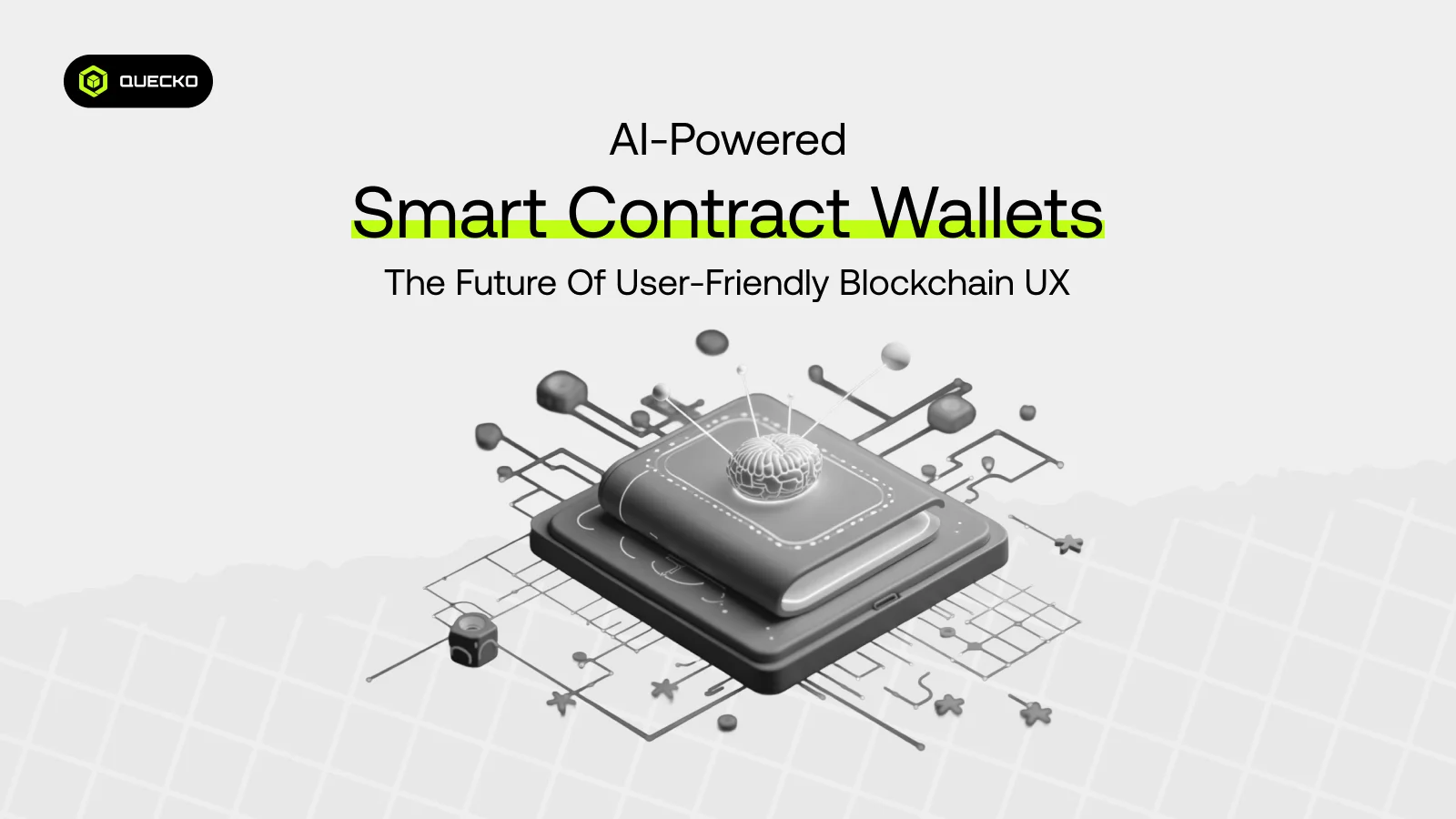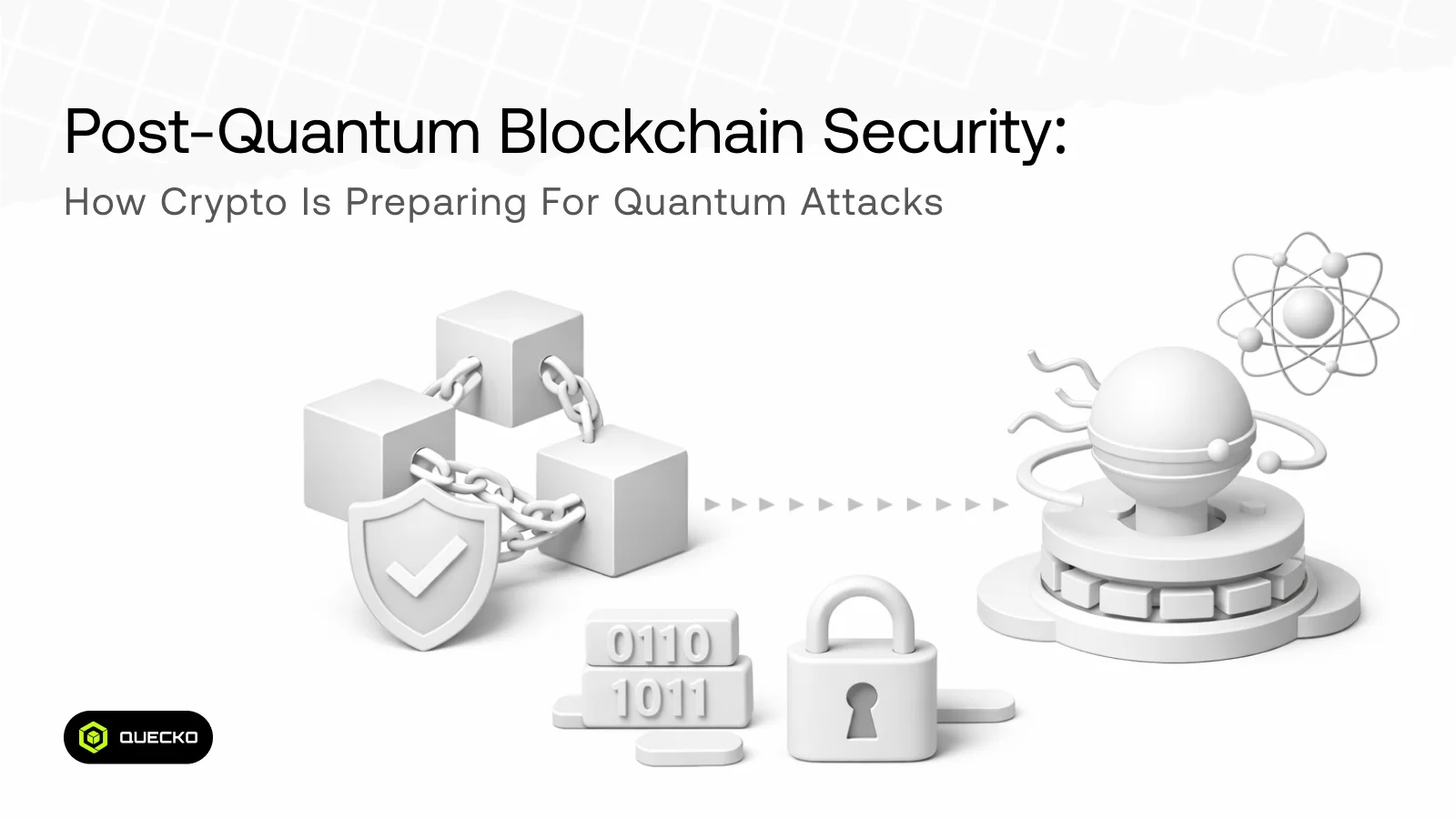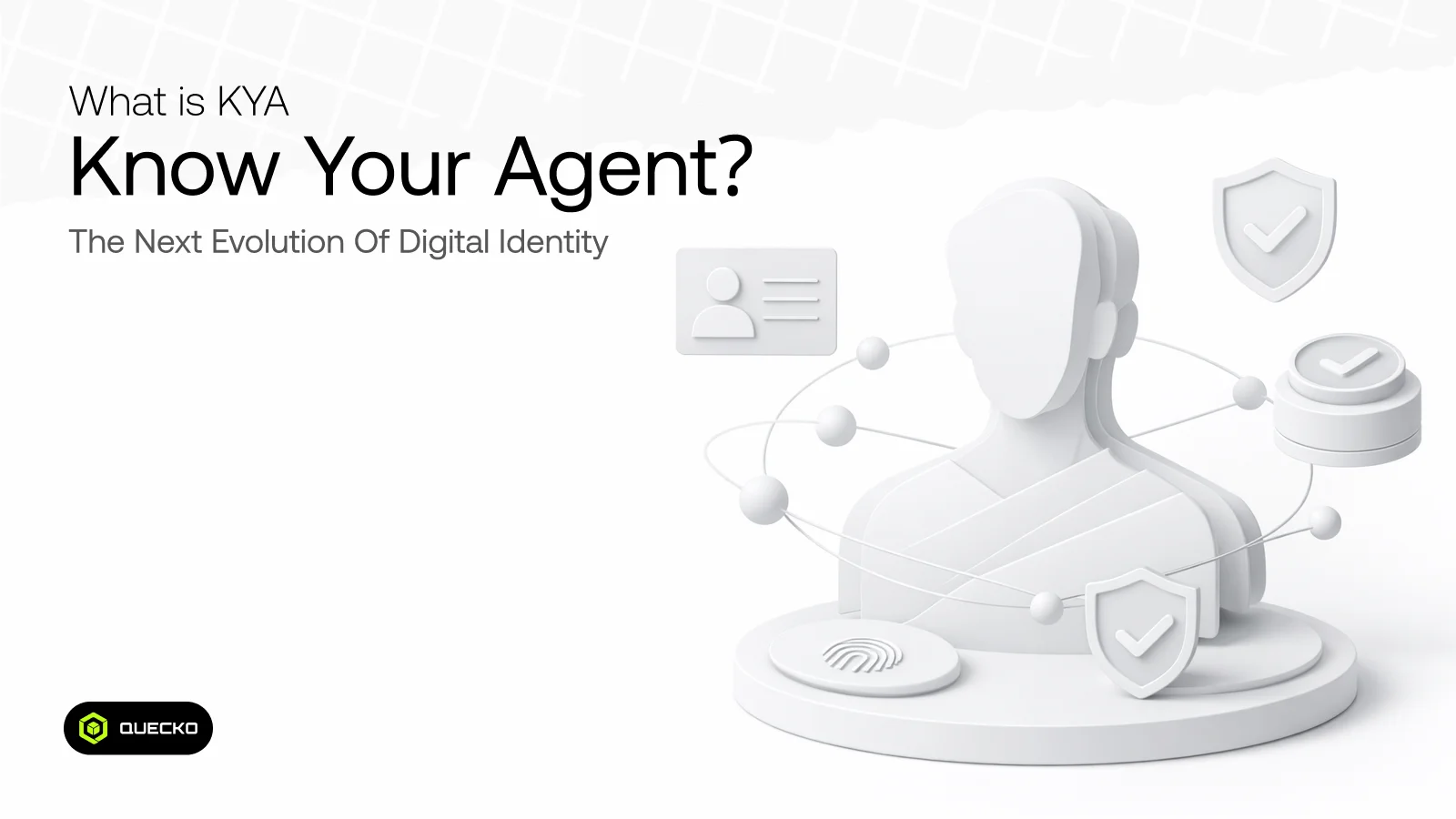AI-Powered Smart Contract Wallets The Future of User-Friendly Blockchain UX
Discover how AI-powered smart contract wallets are revolutionizing blockchain user experience with enhanced security, simplicity, and automation. Explore the future of user-friendly decentralized finance today.

The rapid evolution of blockchain technology has revolutionized the way we perceive digital assets, decentralization, and financial transactions. Central to this transformation are smart contracts, self-executing agreements embedded with code that facilitate trustless interactions across decentralized networks. However, despite their technical prowess, the user experience (UX) associated with traditional smart contract wallets often remains complex and inaccessible to the average user. This barrier has hindered widespread adoption and integration of blockchain-based solutions into everyday life.
Enter AI-powered smart contract wallets, a groundbreaking innovation that promises to redefine the landscape of blockchain user interfaces. By leveraging artificial intelligence, these wallets aim to simplify complex blockchain interactions, enhance security, and deliver personalized, intuitive experiences. Features such as automated transaction management, real-time risk assessment, natural language interfaces, and adaptive security protocols are transforming how users interact with decentralized assets. This convergence of AI and blockchain technology is poised to make blockchain experiences more user-friendly, accessible, and trustworthy.
As the industry moves toward mainstream adoption, AI-powered smart contract wallets stand at the forefront of creating a seamless, secure, and engaging user experience. They hold the potential to democratize access to decentralized finance (DeFi), non-fungible tokens (NFTs), and other blockchain applications, bridging the gap between sophisticated technology and everyday users.
In this context, exploring the development, capabilities, and implications of AI-powered smart contract wallets is crucial for understanding the future trajectory of user-centric blockchain UX.
What Are AI-Powered Smart Contract Wallets?
AI-Powered Smart Contract Wallets are advanced digital wallets that leverage artificial intelligence (AI) technologies to enhance the security, functionality, and user experience of managing cryptocurrency assets and digital identities. These wallets integrate smart contract capabilities with AI algorithms to automate, optimize, and secure transactions and wallet management processes.
Key Features and Components:
- Smart Contract Integration:
At their core, these wallets are built on blockchain-based smart contracts, self-executing contracts with the terms directly written into code. This allows for programmable, automated interactions such as multi-signature approvals, conditional transactions, and recurring payments without manual intervention. - AI-Driven Security:
AI algorithms analyze transaction patterns, user behavior, and network activity to detect anomalies, potential threats, or fraudulent activities. This continuous monitoring, combined with blockchain technology and the use of private keys, helps prevent unauthorized access and mitigates hacking risks, making the wallet more secure. Additionally, predictive analytics can identify emerging threats, while integration with blockchain networks and DeFi platforms enhances overall security and functionality. - Personalized User Experience:
AI personalizes the interface and recommendations based on user habits and preferences. For example, it might suggest optimal transaction times, currency conversions, or investment opportunities tailored to the user’s profile. Additionally, AI can enhance blockchain technology integration by recommending secure blockchain platforms, managing private keys effectively, and ensuring wallet security. It can also support features like social recovery options to help users regain access to their assets securely. - Automation and Optimization:
AI automates routine tasks such as fund transfers, rebalancing asset portfolios, or executing complex transaction sequences based on predefined rules or real-time market data. Integrating blockchain technology enhances security and transparency, as transactions are verified using consensus mechanisms across blockchain platforms. The use of private keys ensures secure access to digital assets, while social recovery methods provide additional security for account recovery. Decentralized Identity solutions further empower users with control over their digital identities, reducing reliance on centralized authorities. Overall, this combination reduces manual effort and improves efficiency in financial operations. - Predictive Analytics:
By analyzing historical data and market trends, AI provides predictive insights that assist users in making informed investment decisions, timing transactions, or managing risks within blockchain technology and blockchain platforms, understanding consensus mechanisms, navigating decentralized ecosystems, securing seed phrases, and optimizing asset storage.
6. Natural Language Processing (NLP):
Some AI-powered wallets incorporate NLP features, enabling users to interact via voice commands or natural language queries to perform transactions or retrieve information effortlessly, while also managing seed phrases securely, addressing security threats, supporting account abstraction, handling gas fees and transaction fees, facilitating access to NFT marketplaces, integrating hardware wallets, and aligning with evolving blockchain architecture.
Automated Contextual Assistance – AI-Powered Smart Contract Wallets:
In the rapidly evolving landscape of blockchain technology, usability and security remain pivotal challenges for mainstream adoption. Traditional wallets often require users to possess technical expertise, navigate complex interfaces, and understand intricate contract details, creating barriers for everyday users. To bridge this gap, the advent of AI-powered smart contract wallets with automated contextual assistance heralds a new era of user-friendly blockchain experiences.
AI-Powered Smart Contract Wallets
Smart contract wallets are digital wallets that leverage programmable contracts to automate various functions such as asset management, transaction validation, and security protocols. When integrated with advanced AI capabilities, these wallets transcend static functionalities, offering dynamic, intelligent assistance tailored to user behavior and contextual needs.
Core Features and Functionalities
Automated contextual assistance refers to intelligent systems designed to provide relevant support and guidance based on the user’s current environment, task, or input, enhancing overall user experience and efficiency. Its core features include real-time analysis of user behavior and environmental cues, enabling the system to understand the specific context in which assistance is required. This includes dynamically recognizing user intent, detecting potential issues or errors, and offering proactive suggestions or solutions without explicit prompts.
AI-powered smart contract wallets integrate advanced artificial intelligence capabilities to enhance security, usability, and automation in digital asset management. Core features include intelligent transaction validation that assesses risk factors and detects potential fraud, dynamic authorization processes that adapt based on user behavior patterns, and automated compliance checks to ensure adherence to regulatory standards. These wallets also leverage AI algorithms for personalized user experiences, such as proactive security alerts and tailored transaction suggestions. Additionally, they facilitate seamless integration with decentralized applications (dApps) by enabling smart contract interactions that are context-aware and optimized for efficiency. Overall, AI-powered smart contract wallets aim to provide a secure, user-friendly, and intelligent infrastructure for managing digital assets within the decentralized ecosystem.
Functionalities often encompass natural language processing for seamless communication, adaptive learning to personalize support over time, and integration with various data sources for comprehensive insights. Additionally, automated contextual assistance can deliver contextual notifications, guide users through complex workflows, or automate routine tasks, thereby reducing cognitive load and increasing productivity.
By leveraging advanced algorithms and machine learning, these systems ensure that support is timely, relevant, and tailored to individual needs, ultimately fostering a more intuitive and responsive user interaction.
- Contextual Understanding and Guidance
- AI algorithms analyze user interactions in real-time, deciphering intent, familiarity level, and potential needs.
- When a user initiates a transaction or interacts with a contract, the AI offers step-by-step guidance, clarifications, or warnings if anomalies are detected.
- For example, if a user attempts to approve a large transfer, the AI prompts additional verification or offers risk assessments.
- Automated Transaction Optimization
- AI models suggest optimal gas fees, transaction timings, or alternative pathways to maximize efficiency and cost-effectiveness.
- The system can preemptively recommend consolidating multiple transactions or batching operations to save on fees.
- Security and Fraud Detection
- Continuous monitoring and AI-driven anomaly detection can flag suspicious activities, unauthorized access attempts, or potential scams.
- The wallet can automatically lock or restrict certain operations until user verification is complete.
- Personalized User Education
- Embedded AI tutors explain complex contract functions, terms, and blockchain concepts in simple language.
- Adaptive tutorials and contextual hints help novices understand the implications of their actions.
- Proactive Automation
- Users can set preferences or rules (e.g., automatic recurring payments, threshold-based transactions), which the AI manages proactively.
- For instance, the wallet might automatically execute predefined strategies during market volatility or when specific conditions are met.
Advantages Over Traditional Wallets
- Enhanced Accessibility: Simplifies blockchain interactions for non-experts through intuitive guidance and automation.
- Increased Security: Proactive alerts and anomaly detection mitigate risks associated with phishing, scams, or user errors.
- Efficiency and Cost Savings: AI-driven recommendations optimize transaction costs and execution time.
- User Empowerment: By providing clear explanations and automation, users gain confidence and control over their digital assets.
Future Implications
The integration of AI-powered contextual assistance into smart contract wallets signifies a transformative shift toward seamless, secure, and intelligent blockchain experiences. As these wallets become more sophisticated, they will enable:
- Mass adoption by reducing barriers and enhancing trust.
- Interoperability across diverse blockchain networks through adaptive learning and contextual understanding.
- Advanced automation for complex contract interactions, enabling users to execute sophisticated strategies effortlessly.
In conclusion, AI-powered smart contract wallets equipped with automated contextual assistance are poised to redefine the user experience in blockchain. By combining intelligent guidance, security, and automation, they make blockchain technology more accessible, secure, and efficient, paving the way for broader adoption and innovative use cases in the decentralized economy.
Advantages of AI-Powered Smart Contract Wallets:
AI-powered smart contract wallets, such as Gnosis Safe, leverage advanced cryptographic systems and account abstraction to provide several advantages. These include enhanced security through real-time risk assessment and fraud detection, which help mitigate risks associated with digital transactions.
AI-powered smart contract wallets offer several significant advantages that enhance the security, efficiency, and user experience of managing digital assets. By integrating artificial intelligence, these wallets can automatically detect and prevent fraudulent activities or unauthorized access, providing a higher level of security. They also facilitate intelligent transaction management, such as optimizing transaction fees, predicting user needs, and automating routine tasks, which streamlines user interactions and reduces manual effort. Additionally, AI can enable personalized financial insights and proactive alerts, helping users make more informed decisions. Overall, AI-powered smart contract wallets combine the transparency and automation of blockchain technology with intelligent features that improve usability, security, and responsiveness.
They also improve user experience with intuitive interfaces and automated processes, reducing complexities like managing gas fees and transaction fees. Furthermore, they increase efficiency via dynamic transaction management and support features like smart contract templates for customizable solutions.
These wallets enable personalized financial services, seamless integration with decentralized applications, including decentralized exchanges, and smarter asset management, making digital transactions more secure, efficient, and user-friendly.
- Enhanced Security: AI continuously monitors for suspicious activity, utilizing advanced technologies like large language models and account abstraction to enhance security. It helps make wallets resilient against cyber threats, manages gas fees efficiently, and integrates with platforms such as Gnosis Safe and decentralized exchanges to ensure comprehensive protection.
- Automation and Efficiency: Tasks that traditionally require manual input, such as wallet setup and Web3 wallets configuration, are automated through innovations like account abstraction, saving time and reducing errors. This advancement also enhances UX/UI design in Crypto Wallet Development.
- Customizability: AI adapts to user behavior through advanced techniques like “Large language model” integration, providing personalized services and optimizing asset management. Concepts such as “account abstraction” help streamline user interactions, while managing “gas fees” efficiently enhances transaction costs. In the realm of “Crypto Wallet Development,” these innovations support secure and user-friendly solutions. Additionally, AI facilitates the operation of “decentralized exchange” platforms by improving user experience and transaction efficiency.
- Improved Decision-Making: Predictive insights aid users in making strategic financial choices related to “account abstraction,” “Web3 wallets,” “user onboarding,” “crypto assets,” and “multi-chain management.“
- Transparency and Trust: Smart contracts, with features like “security audits” and “Multi-Signature Support,” ensure transactions are executed exactly as programmed, fostering trust.
Use Cases:
- Decentralized Finance (DeFi): Automating lending, borrowing, and yield farming strategies with AI optimization.
- Digital Identity Management: Securing identity verification through AI-enhanced smart contracts.
- Enterprise Solutions: Managing supply chain, asset tracking, or contractual agreements with automated, AI-verified processes.
Challenges and Considerations:
- Complexity: Integrating AI with blockchain adds technical complexity that requires specialized expertise.
- Data Privacy: Ensuring user data used for AI analysis remains secure and compliant with regulations.
- Transparency: While smart contracts are transparent, AI decision-making processes can sometimes be opaque, raising questions about interpretability.
AI-Powered Smart Contract Wallets represent an innovative convergence of blockchain, AI, and automation technologies. They aim to provide smarter, more secure, and user-friendly solutions for managing digital assets, enabling users and organizations to harness the full potential of decentralized digital economies with enhanced confidence and efficiency.
The Future Outlook
The evolution of blockchain technology has ushered in a new era of decentralized finance (DeFi), digital asset management, and trustless transactions. Central to this progression are smart contract wallets, automated, programmable wallets that enable complex transaction logic, multi-signature security, and seamless integrations.
The future outlook of AI-powered smart contract wallets is highly promising, as advancements in artificial intelligence continue to enhance their functionality, security, and user experience. These wallets are expected to become more autonomous, capable of intelligently managing transactions, optimizing gas fees, and detecting potential security threats in real-time. AI integration will also facilitate personalized financial insights, automated compliance, and dynamic decision-making, making decentralized finance (DeFi) more accessible and user-friendly. As blockchain technology evolves, AI-powered smart contract wallets are likely to play a crucial role in enabling seamless, secure, and intelligent digital asset management, paving the way for broader mainstream adoption and innovative use cases in decentralized ecosystems.
As artificial intelligence (AI) continues to advance, its integration with smart contract wallets is poised to revolutionize how users interact with blockchain ecosystems, promising enhanced security, usability, and intelligent automation.
- Enhanced Security and Fraud Prevention
AI-driven smart contract wallets will leverage machine learning algorithms to detect suspicious activities and potential security breaches in real-time. By analyzing transaction patterns, user behavior, and network anomalies, these wallets can proactively flag or block malicious transactions, reducing the risk of hacks and fraud.
Future models may incorporate biometric authentication and behavioral biometrics, ensuring that only authorized users can access or execute transactions, thereby elevating security standards.
- Personalized User Experience and Automation
AI will facilitate highly personalized interfaces tailored to individual user preferences and behaviors. Smart contract wallets will learn from user interactions to automate routine transactions, such as recurring payments, investment rebalancing, or asset transfers. Natural language processing (NLP) capabilities can enable users to interact with their wallets via voice commands or conversational interfaces, simplifying complex blockchain operations for novices and experts alike.
- Intelligent Asset Management and Investment Strategies
AI-powered wallets will serve not only as storage solutions but also as intelligent asset managers. By analyzing market data, sentiment analysis, and historical trends, these wallets can offer automated investment advice, optimize portfolio allocations, and execute trades autonomously. This integration democratizes access to sophisticated financial strategies, empowering users to maximize returns with minimal manual intervention.
- Interoperability and Cross-Chain Functionality
Future AI-enabled wallets will likely support interoperability across multiple blockchain networks, utilizing AI to manage and reconcile assets seamlessly. AI algorithms can determine optimal routes for cross-chain transactions, minimize fees, and ensure security across diverse protocols, facilitating a more interconnected and efficient blockchain ecosystem.
- Privacy Preservation and Data Control
AI can enhance privacy features within smart contract wallets by enabling zero-knowledge proofs and other cryptographic techniques. Users will retain greater control over their data, selectively sharing information as needed without compromising privacy. AI-driven privacy safeguards will also detect and mitigate data leaks or unauthorized access attempts.
- Challenges and Ethical Considerations
Despite promising prospects, integrating AI into smart contract wallets raises challenges such as ensuring transparency, preventing biases in AI decision-making, and safeguarding user data. Regulatory frameworks will need to adapt to these innovations, establishing standards for AI governance and security. Moreover, reliance on AI introduces new attack vectors, necessitating rigorous testing and continuous monitoring.
- Market Adoption and Ecosystem Development
As AI-powered smart contract wallets mature, widespread adoption will hinge on user trust, ease of use, and demonstrable security benefits. Collaboration among blockchain developers, AI researchers, and regulatory bodies will accelerate ecosystem growth. The integration of AI will also foster new financial products and services, expanding the utility of decentralized applications.
In summary, the future of AI-powered smart contract wallets is poised to be transformative, blending advanced AI capabilities with blockchain’s decentralized ethos. They will offer smarter, more secure, and user-friendly solutions that democratize access to complex financial tools while maintaining transparency and privacy. As technological, regulatory, and ethical hurdles are addressed, these intelligent wallets will become integral to the next generation of digital asset management and decentralized finance.
Challenges and Considerations
AI-powered smart contract wallets represent a cutting-edge intersection of artificial intelligence and blockchain technology, offering enhanced automation, security, and user experience. However, their deployment and adoption come with a myriad of challenges and considerations that stakeholders must carefully evaluate.
1. Security and Vulnerability Risks
- Complexity of AI Algorithms: AI models, especially those involving machine learning, can introduce unforeseen vulnerabilities. Malicious actors might exploit weaknesses in the AI decision-making process.
- Smart Contract Exploits: Smart contracts are susceptible to bugs and exploits (e.g., reentrancy attacks). Incorporating AI adds another layer of complexity, potentially enlarging attack surfaces.
- Data Poisoning & Adversarial Attacks: AI models may be manipulated through poisoned data or adversarial inputs, leading to incorrect transaction approvals or rejections.
2. Transparency and Explainability
- Opacity of AI Decisions: Many AI models, particularly deep learning, act as “black boxes,” making it difficult for users and auditors to understand decision processes.
- Trust and Compliance: Lack of explainability can hinder regulatory compliance and user trust, especially in financial applications where understanding decision rationale is crucial.
3. Data Privacy and Security
- Sensitive Data Handling: AI systems often require data to train or operate, raising concerns about user privacy, especially if personal data is involved.
- Decentralized Data Management: Ensuring that data used by AI components respects privacy laws (e.g., GDPR) while maintaining decentralized principles is challenging.
4. Integration and Interoperability
- Technical Complexity: Seamlessly integrating AI modules with existing blockchain infrastructure and ensuring interoperability across different platforms can be technically demanding.
- Resource Constraints: Running sophisticated AI models on-chain is resource-intensive; off-chain solutions introduce latency and trust issues.
5. Ethical and Regulatory Considerations
- Accountability: Determining liability when AI-powered wallets malfunction or are exploited is complex, raising questions about responsibility.
- Regulatory Compliance: Different jurisdictions have varying rules on automated decision-making, which could impact AI-enabled wallets.
6. Performance and Scalability
- Latency Issues: AI computations may introduce delays, affecting transaction speed and user experience.
- Scalability Challenges: As transaction volume grows, maintaining performance and responsiveness becomes increasingly difficult.
7. User Experience and Accessibility
- Complexity for Users: While AI aims to simplify interactions, understanding AI-driven decisions may be challenging for non-expert users.
- Trust in Automation: Users must trust AI to make sound decisions, which can be difficult if explanations are not provided.
8. Maintenance and Upgradability
- Model Updating: AI models may require retraining or updates to adapt to changing conditions, raising issues about version control and security.
- Long-Term Sustainability: Ensuring continuous operation and security of AI components over time demands ongoing resources and oversight.
Conclusion
AI-powered smart contract wallets represent a transformative advancement in the evolution of blockchain user experience, bridging the gap between complex technical processes and mainstream accessibility. By integrating artificial intelligence, these wallets offer enhanced security through intelligent threat detection, personalized user interfaces, and simplified key management, making blockchain interactions more intuitive and trustworthy for users of all backgrounds. As the technology matures, we can anticipate a proliferation of features such as automated transaction optimization, real-time assistance, and adaptive security protocols, all contributing to a seamless and user-centric blockchain ecosystem.
AI-powered smart contract wallets represent a significant advancement in the realm of blockchain technology, offering enhanced security, automation, and user experience. By integrating artificial intelligence, these wallets can intelligently manage assets, detect suspicious activities, and optimize transaction processes, thereby reducing human error and increasing trustworthiness. The conclusion of their development underscores their potential to revolutionize digital asset management, making blockchain interactions more secure, efficient, and accessible for users worldwide. As technology continues to evolve, AI-powered smart contract wallets are poised to become a cornerstone in the future of decentralized finance and digital asset security.
Ultimately, AI-driven smart contract wallets are poised to accelerate blockchain adoption by lowering entry barriers, fostering greater user confidence, and enabling a new era of decentralized applications that are both powerful and user-friendly. This synergy of AI and blockchain promises not only to redefine how users interact with digital assets but also to catalyze innovation across the decentralized landscape, shaping the future of blockchain UX into one that is more accessible, secure, and efficient.
Date
6 months agoShare on
Related Blogs

Post-Quantum Blockchain Security: How Crypto Is Preparing for Quantum
5 days ago

Why 2026 Is Web3’s Moment?
5 days ago

Real-World Use Cases of Blockchain Beyond Cryptocurrency
6 days ago

What is KYA (Know Your Agent)? The Next Evolution of Digital Identity
8 days ago







